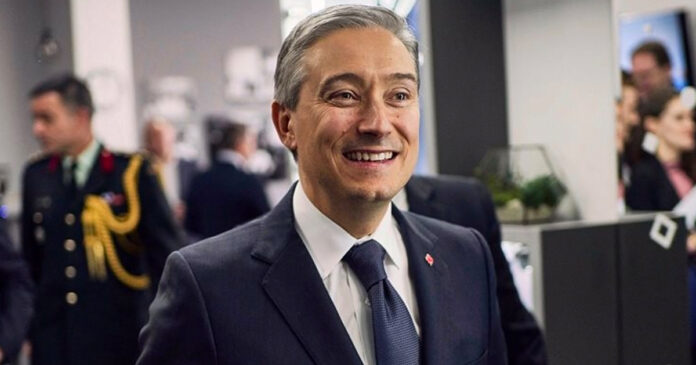Beneath Saigon’s simmering sun, amid the din and clangour of its estimated 7.3 million motorbikes, a murmur ran through the city’s streets, a whispered directive: that for travel to be truly moral, one must fundamentally “transform themselves” to “enact change” and to “manifest impact.” This was almost ten years ago during my time there as an overseas language teacher, a time when the previous, friendlier doctrine of “new tourism” was at its height.
It turned out that “new tourism” already held the nascent ethos of the “ethical” or “sustainable tourism” that has swept travel. It’s a concept that threatens to reshape not only our itineraries but the very spirit of travel. Today, in this post-COVID-19 “new normal” – the world’s scars laid bare on screens, Russia and Ukraine at loggerheads, Israel fighting for its life, the propaganda onslaught on “climate boiling” – has the lustre of travel simply worn thin?
Vietnam, where I live today, was once a burgeoning star in tourism. Now, the industry has wilted like a lotus in the drought. Where 18 million travellers once roamed each year, the beach towns of the south are running at half capacity, as are the hiking outposts in northern provinces like Lào Cai. Tourism’s contribution to the nation’s GDP has waned from a healthy 9.2 per cent to barely 2 per cent. Vietnam’s tale is one not only of silenced voices and empty vistas: it is a poignant epitaph to a once-vibrant era. The final country to open up to the world as a major tourist destination became one of the first to “fall.”
It is within this stillness that the doctrine of the “ethical tourist” emerges. With its emphasis on equity, sustainability and communion with the marginalized, ethical tourism is woven with the threads of social justice, postcolonial redress and ecological mindfulness. It means navigating not just through landscapes but through the intricate labyrinths of history, politics and the shifting sands of power and privilege that come hand-in-hand with the contemporary malaise of wokism.
Where the “new tourism” was joyful – if admittedly narcissistic – “ethical” or “sustainable” tourism demands people venture out only to be made to apologize for their travels: a pilgrimage of guilt at every step of the way. It is a weird brew of condescension and self-disdain, directing itself with an air of moral superiority in opposition to what we could here call traditional tourism – though I prefer the simpler “wanderlust”.
The turn to “ethical tourism” can be seen to straddle the COVID-19 “emergency.” From 2016 onward we see a burgeoning academic and popular literature, including works like Tourism and Sustainability: Development, Globalisation and New Tourism in the Third World, relentlessly pushing a narrative of tourism’s inherent evils. Other titles in this genre include Overtourism: Lessons for a Better Future and Lonely Planet’s own Sustainable Travel Handbook.
In her influential recent piece for The New Yorker, “The Case Against Travel,” University of Chicago philosophy professor Agnes Callard derides tourism as shallow and destructive. Callard wants us all to just quit travelling – or for travel to be made ruinously complicated and expensive if we won’t. Some environmental think-tanks and at least one “ethical” tour operator even advocate “carbon passports” that would minimize the individual’s permissible amount of travel.
Might this herald the twilight of travel as we know it? Such a prospect, to my mind, resonates with a tragic timbre: an unnecessary silencing of the symphony of exploration and human connection. The difference between the “new tourist” – perhaps best captured in the pages of Elizabeth Gilbert’s best-selling memoir (and the Julia Roberts movie of the same name) Eat, Pray, Love – and today’s “ethical tourist” is that “new tourism” is still open to the benefits of undiluted, guilt-free contact with the foreign.
“Ethical tourism” sees only cultural and ecological damage: a pillaging of the land, a kind of permanently installed neocolonialism. In its quest to right the wrongs of history, “ethical tourism” often perpetuates the very cycles of oppression it seeks to dismantle by depriving travellers of their joy and locals of economic opportunity that could fuel their own dreams and aspirations.
In my opinion, our travels are not to be sermons preached from high pulpits but sonnets composed in the quiet moments of discovery and kinship. As we navigate this new era of travel, following the severe damage done by pandemic restrictions, let us not lose sight of the essence and purpose of our journeys: the ceaseless quest for understanding and connection in the cloth of human experience.
Travel while you still can. The story of travel as told by the “ethical tourist” often misses the forest for the trees, focusing on perceived harms while ignoring the potential for the enlightenment and mutual economic growth travel can foster. The journey, an age-old human endeavour, has been celebrated throughout our history for its power to illuminate minds and enrich souls, yet now we stand at a crossroads, navigating a new chapter in the story of travel.
“Ethical tourism,” with its presumptuous claims of addressing the most important issues of our moment regarding our carbon footprint, and the intricacies of interaction with cultures different from our own, should not become a gag and blindfold that stifle the spirit of exploration. Our “doctrine” of travel should serve not as a barrier but as a compass, guiding us to travel more thoughtfully and responsibly, without extinguishing the flame of adventure that burns within us all.
The original, full-length version of this article recently appeared in C2C Journal.
Brock Eldon lives in Hanoi, Vietnam with his wife and daughter. His debut nonfiction novella – Ground Zero in the Culture War – appeared in the C2C Journal.



























